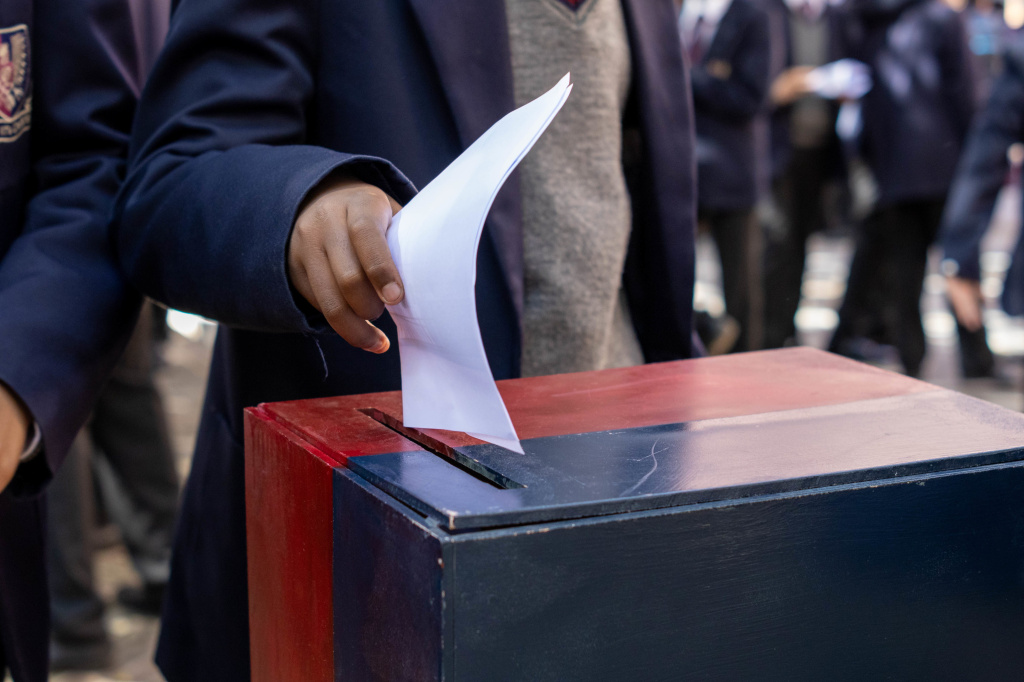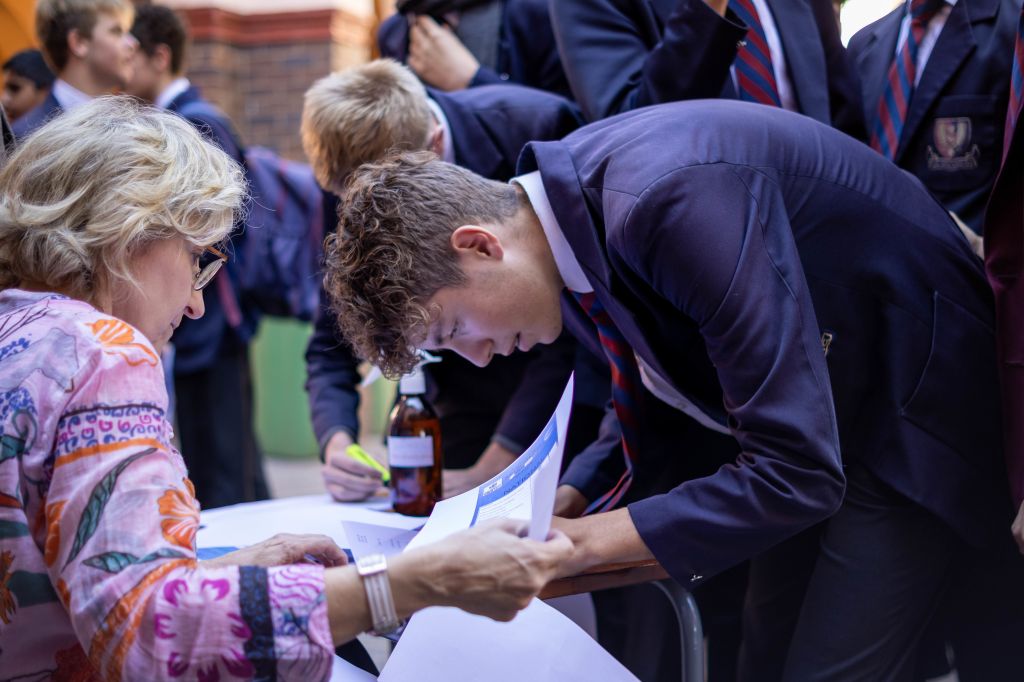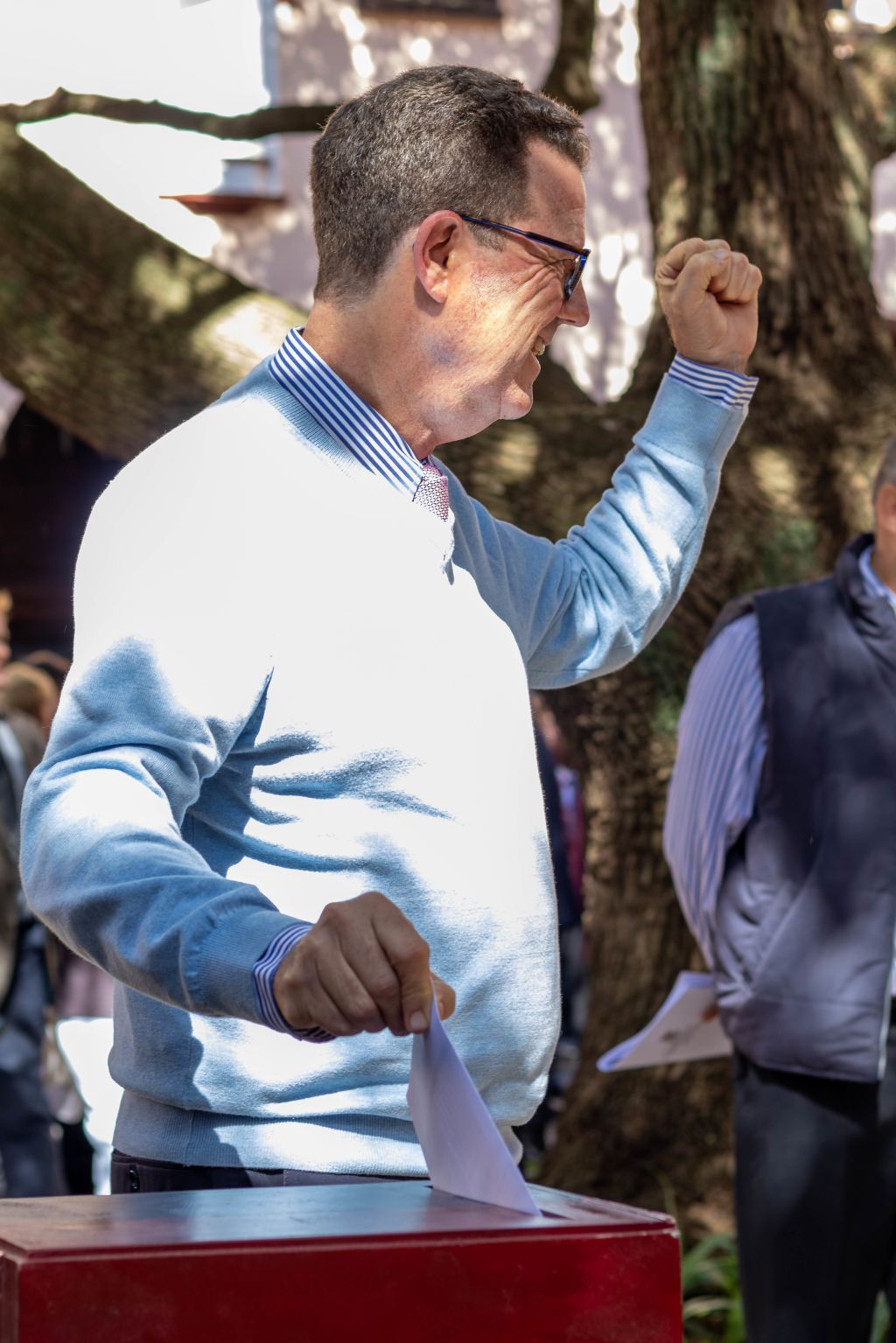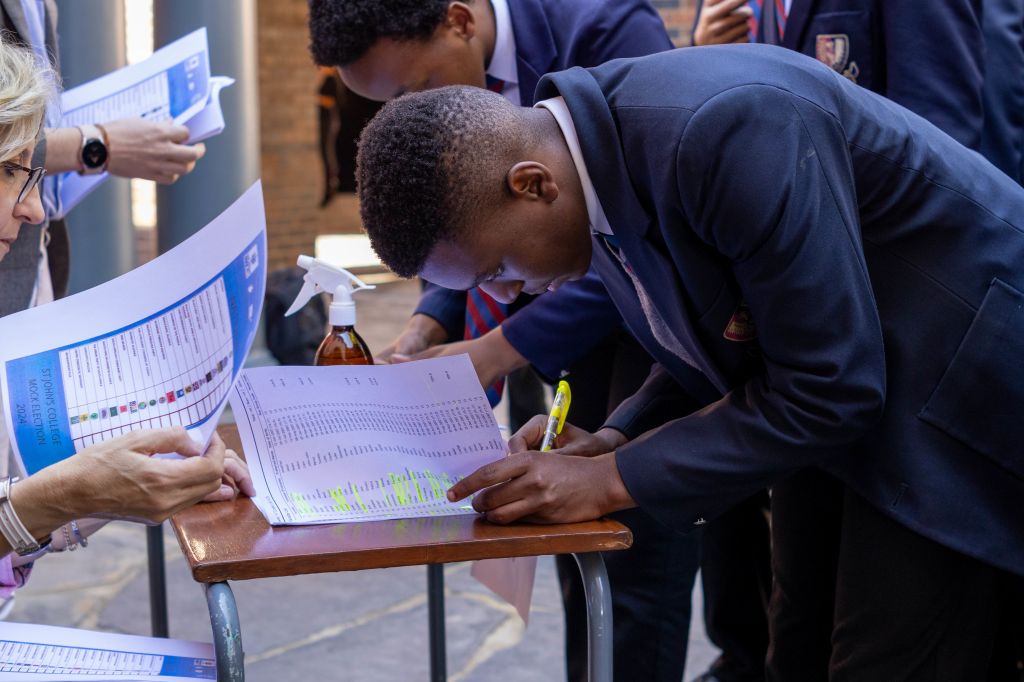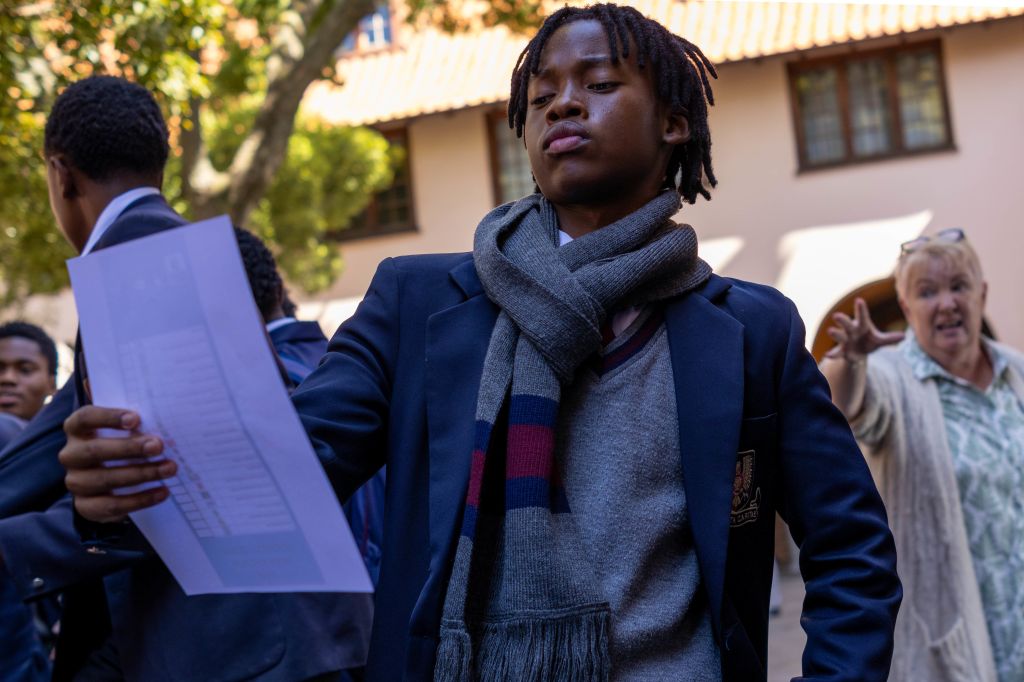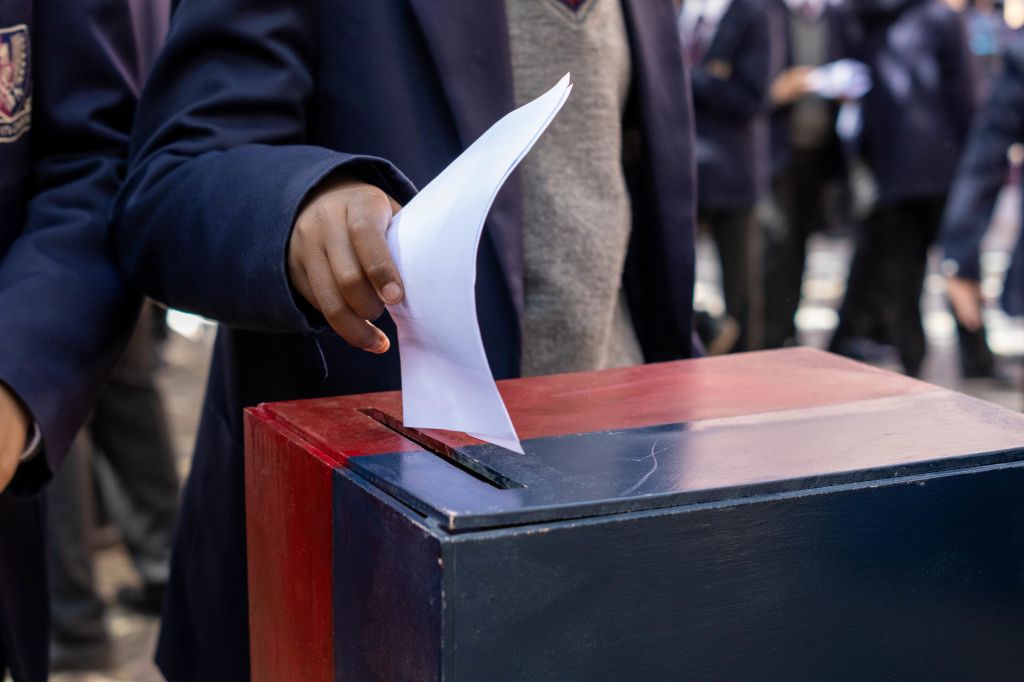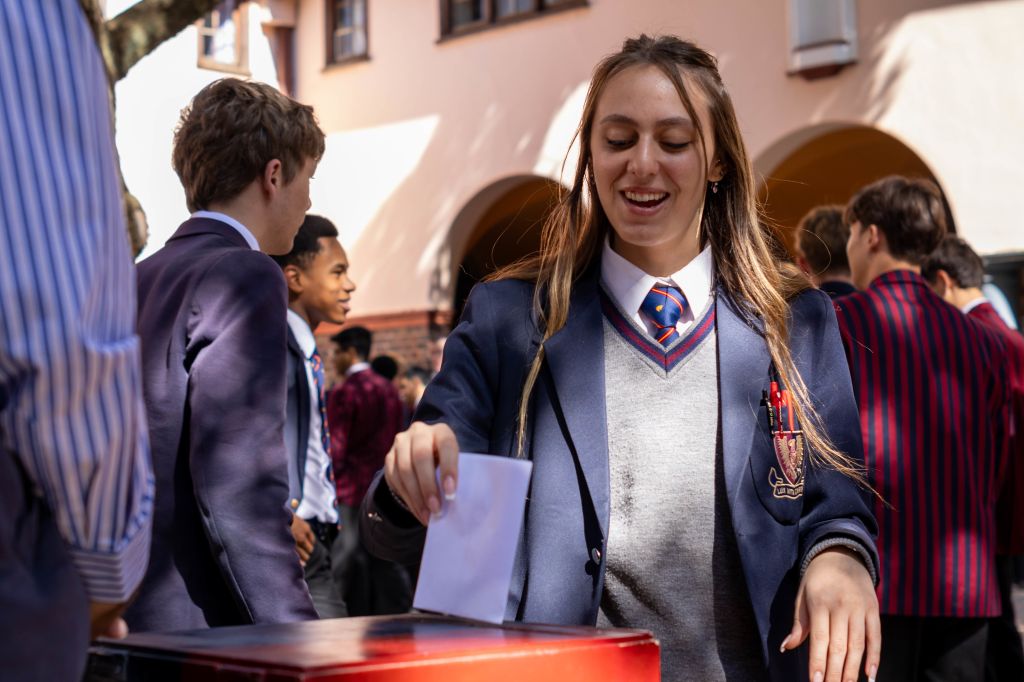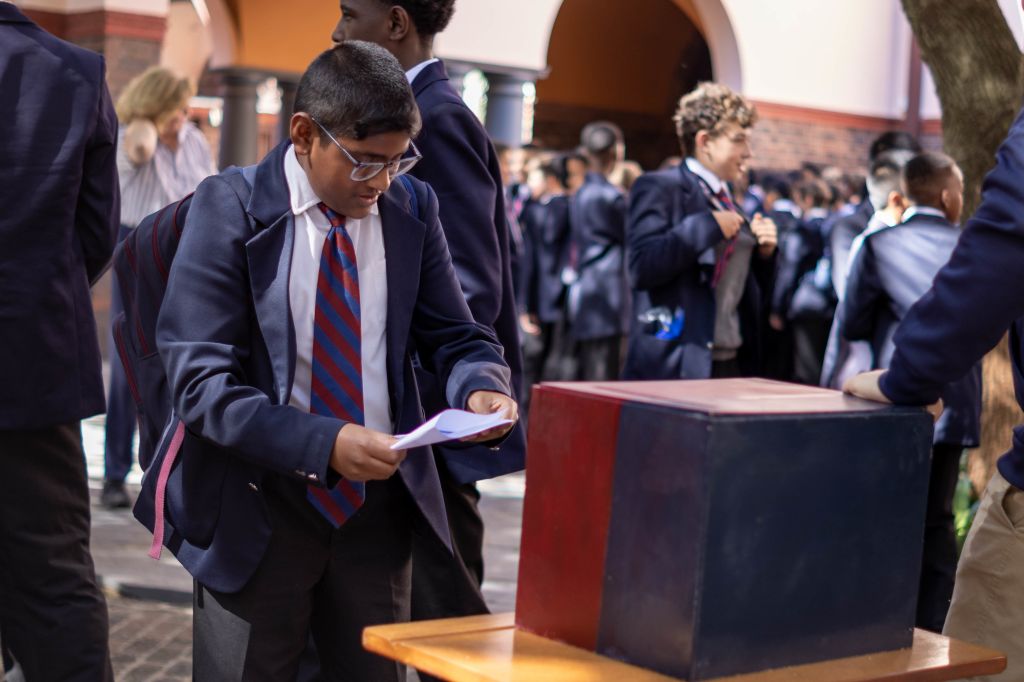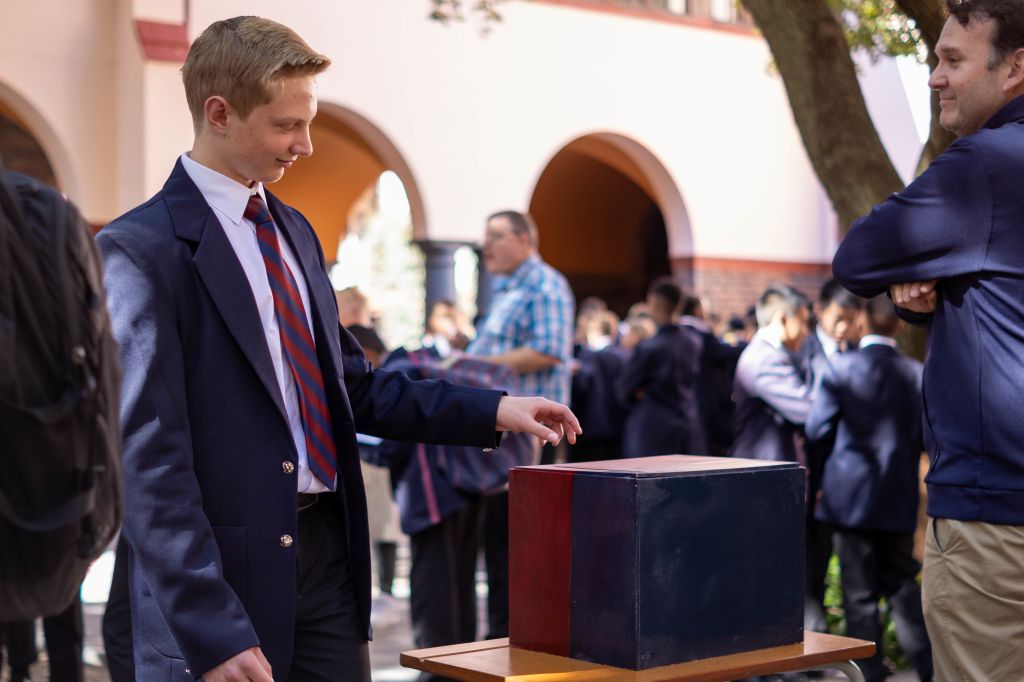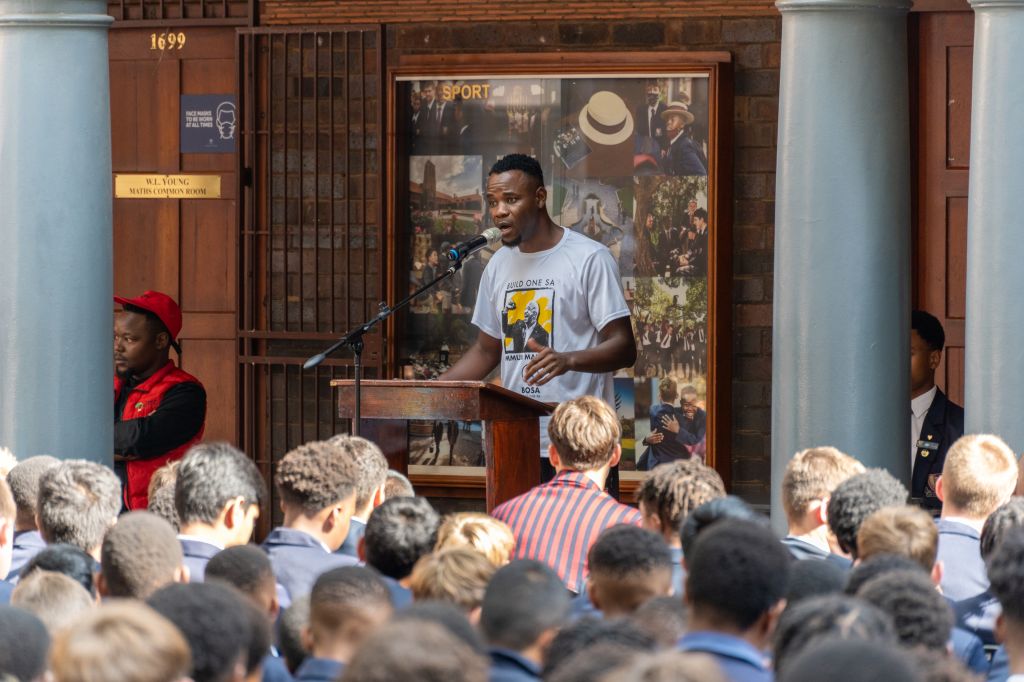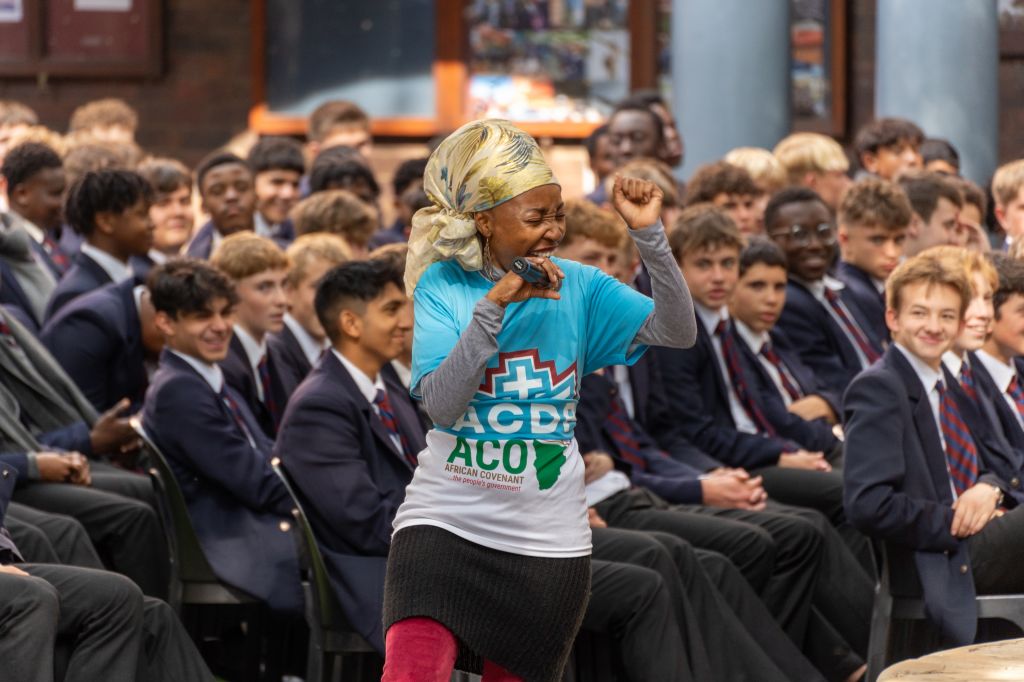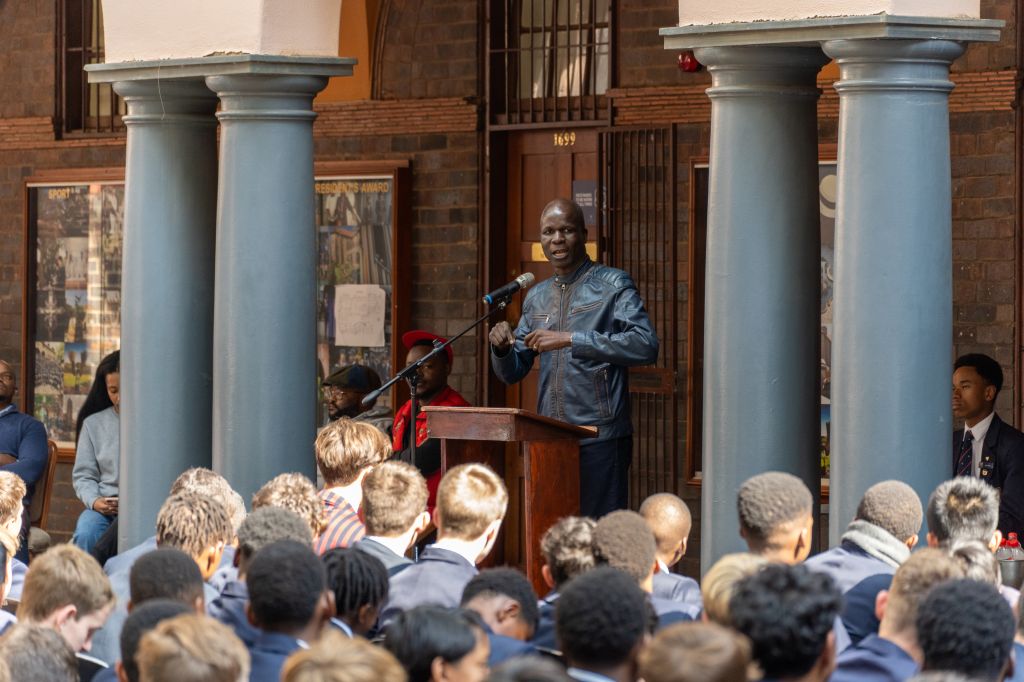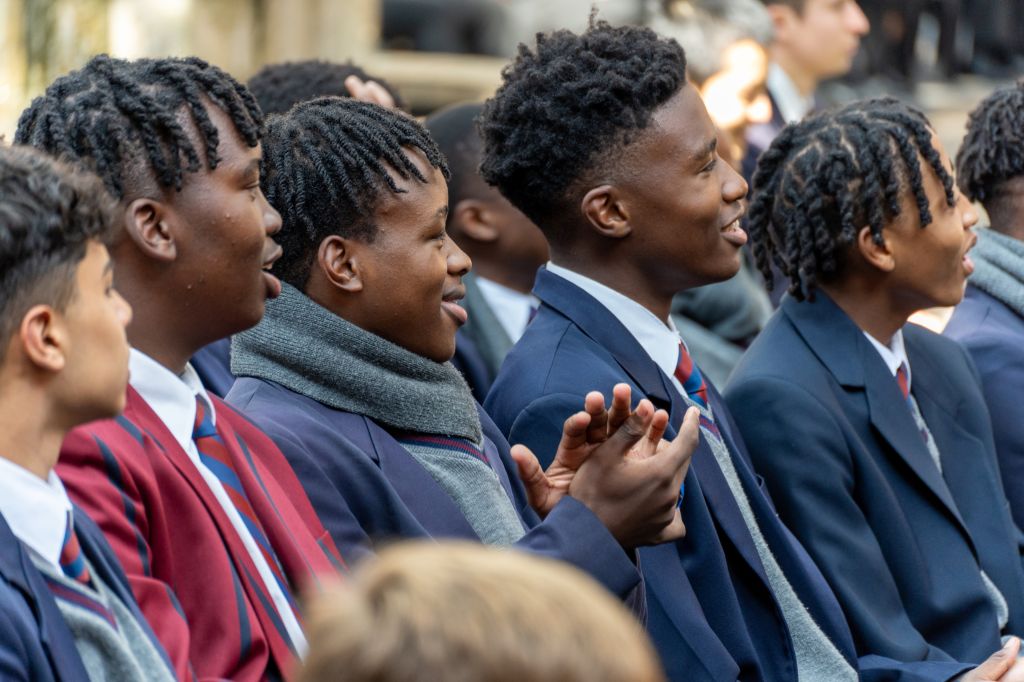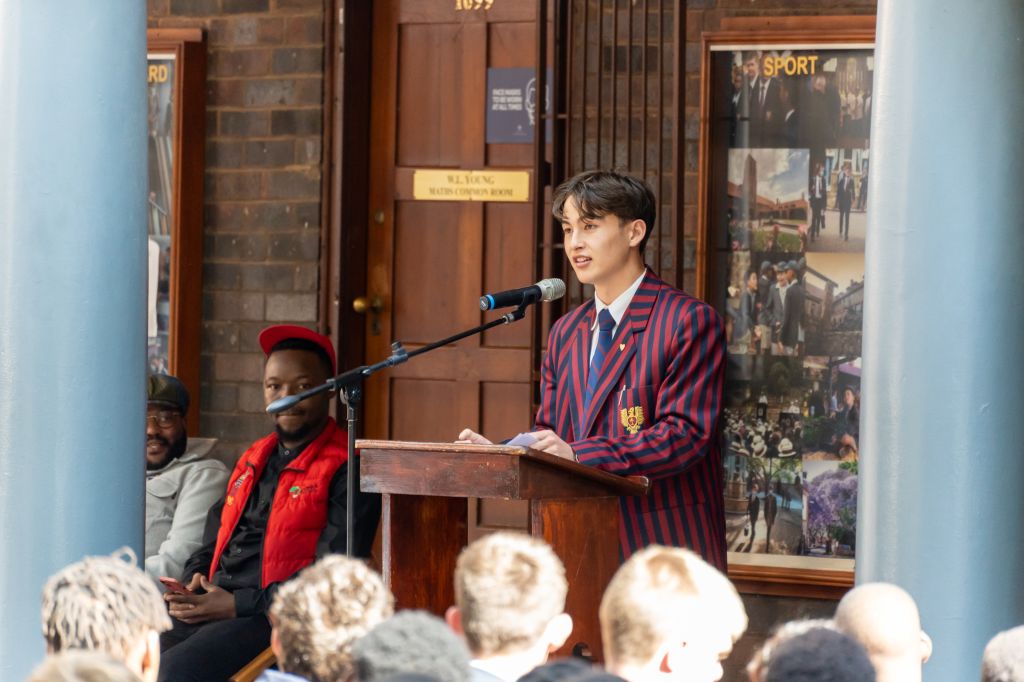I have only been 18 years old for four months, and yet I have been entrusted with the influential ability to vote. It feels as though I have the power to shape part of South Africa’s future.
Ahead of South Africa’s general elections on 29 May 2024, with colourful and competing election posters festooning the commute to school, St John’s College hosted a lively ‘Mock Election’ for our College and Sixth Form students.
The Mock Election has become a regular College fixture since South Africa’s second democratic election in 1999. It aims to educate our young men and women to be responsible, informed, and engaged citizens who understand the importance of democracy and civic participation.
In the run-up to the elections, Mrs Fiona Kampmann and her team launched a series of events for the College and Sixth Form students, starting with an address by broadcast journalist and Old Johannian Aubrey Masango (Clayton 1990), who joined Amphitheatre on 10 May, to chat about the importance of voting and its critical role in shaping the nation's future.
An Election Jamboree was held on 14 May, during which representatives from eight political parties visited St John’s College and presented their manifestos to the students and staff. This allowed students to interact directly with the party representatives, ask questions, and better understand each political party's platform and policies.
Voting day for Mock Election followed on 15 May, when students filed into Pelican Quad to make their mark for their chosen political party. There was a strong turnout, with 743 votes cast by 97% of the student body. The English Department tallied the votes, and the results were announced during the Headmaster’s Assembly on 17 May, with no party receiving a 50% majority. The Democratic Alliance (DA) was the top performer with 38.6% or 287 votes, followed by the Economic Freedom Fighters (EFF) with 19.2% or 143 votes, Build One South Africa (BOSA) with 10.1% or 75 votes, the African National Congress (ANC) with 5.9% or 44 votes, and RISE Mzansi with 5.5% or 41 votes.
Using the formula available on the Independent Electoral Commission (IEC) website, English teacher Mr Ray Barrow (Head of School, 2018) calculated what the parliamentary representation would look like if St John's had a 40-seat parliament (exactly 10% the size of South Africa's 400-seat parliament):
DA: 17 seats
EFF: 8 seats
BOSA: 4 seats
ANC: 2 seats
RISE: 2 seats
MK: 2 seats
Action SA: 2 seats
BLF: 1 seat
ACDP: 1 seat
VF+: 1 seat
In the final build-up to the national elections, Mr Raymond Barrow (Head of School 2018) chaired an election debate at the Amphitheatre on 27 May, where some students represented different political parties. The discussion was lively, with speakers demonstrating remarkable energy and enthusiasm as they articulated their party's positions and addressed key points, ensuring the audience understood each platform comprehensively. This forum helped clarify some issues for staff and those students eligible to vote before casting their ballot.
“The events targeted the entire school for the first time, resulting in enthusiastic class discussions and robust corridor conversations. The high student voter turnout indicated strong engagement and a deeper understanding of the electoral process,” said Mrs Kampmann.
Encouraging his peers to vote, Kali Selepe (UV Hill) said: “I have only been 18 years old for four months, and yet I have been entrusted with the influential ability to vote. It feels as though I have the power to shape part of South Africa’s future. One vote may seem ineffective, but a collective can change a nation. So I urge you to vote if you’re eligible so we may begin changing our country.”

